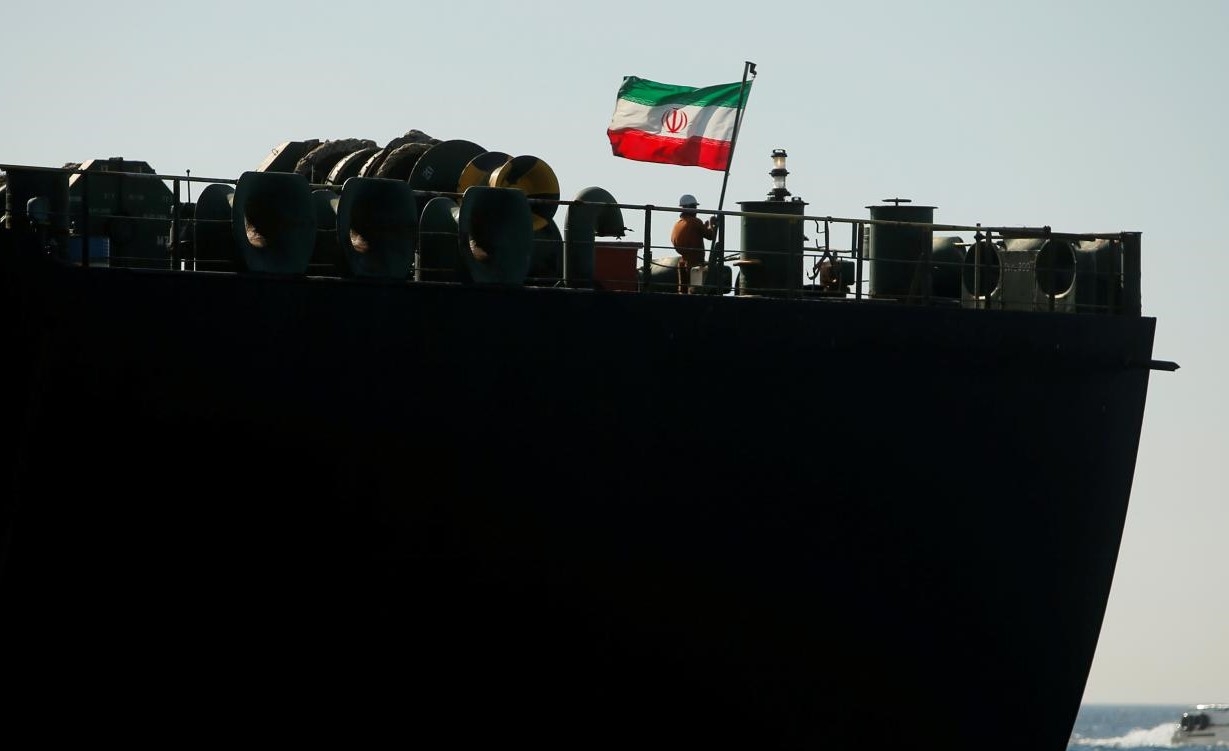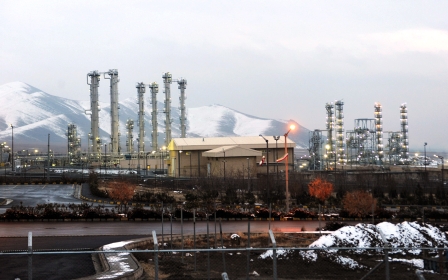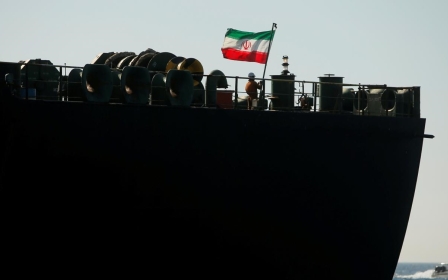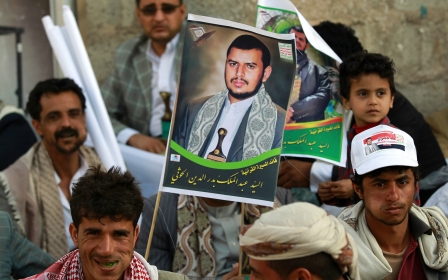Iran could soon release seized British tanker

A British tanker Iran seized amid a crisis on the waters of the Gulf could be released soon, Iranian media reported on Sunday.
The British vessel was detained in July, two weeks after one of Iran's own tankers was raided by British marines, accused of contravening European Union sanctions by transporting oil to Syria.
"I hope the [legal] procedures will be completed soon and this tanker will be released," foreign ministry spokesman Abbas Mousavi told state television.
Iran this week freed seven of the 23 crew members of the British-flagged tanker.
Mousavi also confirmed that Iran's own tanker had offloaded its cargo "on the Mediterranean coast" this week after it was released by Gibraltar, where it was held after being seized on the Mediterranean.
New MEE newsletter: Jerusalem Dispatch
Sign up to get the latest insights and analysis on Israel-Palestine, alongside Turkey Unpacked and other MEE newsletters
Middle East Eye reported last week that the oil aboard the Iranian tanker had been sold to Syria, despite Iran giving assurances that the ship would not head there.
Images shared by US space technology company Maxar Technologies Inc later showed the ship, renamed the Adrian Darya 1 after release, near the Syrian port of Tartus, after going dark earlier in the week.
The Adrian Darya 1's final destination following its release had been the focus of an unfolding drama after several countries along the Mediterranean denied it would be docking with them.
Greece refused to allow it to dock for refuelling and the US warned against anyone providing assistance.
The vessel, which was formerly known as Grace 1, was boarded by British commandos in Gibraltar, a British overseas territory at the western entrance to the Mediterranean, on 4 July, on suspicion that it was heading to the Baniyas refinery in Syria.
Iran subsequently seized the British-flagged oil tanker, the Stena Impero, on 19 July as it passed through the Straits of Hormuz.
US sanctions for Iran oil buyers
The US warned on Sunday that it would continue to impose sanctions on any country that bought oil from Iran.
"We will continue to put pressure on Iran and as President [Donald Trump] said there will be no waivers of any kind for Iran's oil," said Sigal Mandelker, US Treasury Under Secretary for Terrorism and Financial Intelligence.
Mandelker added that Iranian oil sales have taken a "serious nose dive" because of U.S. pressure.
Iran's crude oil exports were slashed by more than 80 percent due to re-imposed sanctions by the US after Trump exited last year Iran's 2015 nuclear deal with world powers.
Since ditching the nuclear deal, calling it skewed to Iran's advantage, Trump has reimposed sanctions to strangle its vital oil trade and force Tehran to accept stricter limits on its nuclear activity, curb its ballistic missile programme and end its support for proxy forces around the Middle East.
In retaliation, Iran has been reducing its commitments under the deal since May, pressuring European countries to the pact to protect Tehran's interests and its economy.
France, Germany and Britain have tried to launch a barter trade mechanism with Iran protecting it from US sanctions but have struggled to get it off the ground, and Tehran on Wednesday set a 60-day deadline for effective European action.
In addition to saving the deal, Tehran wants to restart selling its oil.
Two Iranian officials and one diplomat told Reuters on 25 August that Iran wants to export a minimum of 700,000 barrels per day of its oil and ideally up to 1.5 million bpd if the West wants to negotiate with Tehran to save the nuclear deal.
Middle East Eye delivers independent and unrivalled coverage and analysis of the Middle East, North Africa and beyond. To learn more about republishing this content and the associated fees, please fill out this form. More about MEE can be found here.




